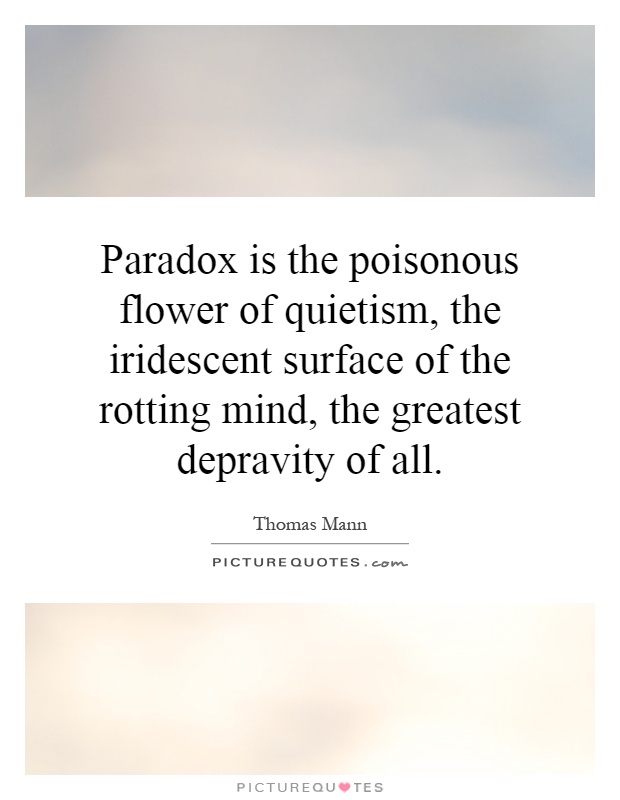Paradox is the poisonous flower of quietism, the iridescent surface of the rotting mind, the greatest depravity of all

Paradox is the poisonous flower of quietism, the iridescent surface of the rotting mind, the greatest depravity of all
Thomas Mann, a renowned German novelist and essayist, was known for his deep philosophical reflections on the human condition. In his works, he often explored the complexities of human nature and the contradictions that exist within the human psyche. One of the recurring themes in Mann's writing is the idea of paradox, which he viewed as a dangerous and destructive force that could lead to moral decay and spiritual emptiness.Mann believed that paradox was the "poisonous flower of quietism," a term he used to describe a passive acceptance of the status quo and a refusal to engage with the world in a meaningful way. In Mann's view, quietism was a form of intellectual laziness that allowed individuals to avoid confronting the difficult questions and contradictions that exist in life. By embracing paradox and refusing to seek out deeper truths, individuals risked becoming complacent and stagnant, unable to grow or evolve as human beings.
For Mann, paradox was also the "iridescent surface of the rotting mind," a metaphor he used to describe the superficiality and shallowness that can result from a fixation on contradictions and ambiguities. Mann believed that a preoccupation with paradox could lead to a kind of moral and intellectual decay, where individuals became so focused on the surface appearance of things that they lost sight of deeper truths and values. By fixating on the contradictions and ambiguities of life, individuals risked losing touch with their own moral compass and becoming adrift in a sea of relativism and nihilism.
Ultimately, Mann saw paradox as the "greatest depravity of all," a moral failing that could lead individuals down a dangerous path of moral relativism and spiritual emptiness. By embracing paradox and refusing to seek out deeper truths, individuals risked losing their sense of moral clarity and becoming lost in a world of moral ambiguity and confusion. Mann believed that it was only by confronting the contradictions and ambiguities of life head-on that individuals could hope to find meaning and purpose in a world that often seemed chaotic and senseless.












 Friendship Quotes
Friendship Quotes Love Quotes
Love Quotes Life Quotes
Life Quotes Funny Quotes
Funny Quotes Motivational Quotes
Motivational Quotes Inspirational Quotes
Inspirational Quotes